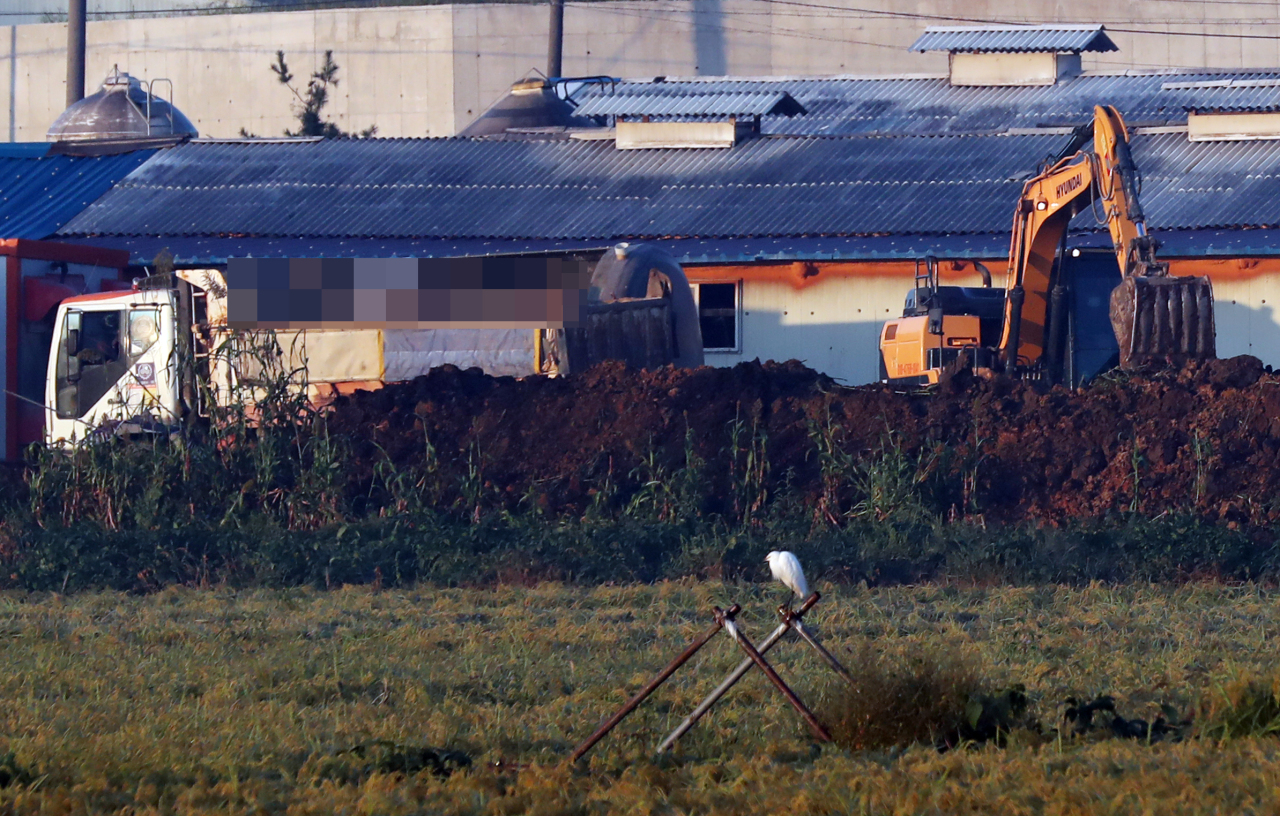South Korea on Tuesday reported its fourth confirmed case of African swine fever in the country, along with a new suspected case, fueling concerns over the nationwide spread of the highly contagious animal disease.
A suspected case reported late Monday afternoon at Paju, located near the border with North Korea, resulted in a positive test for the virus, raising the number outbreaks of the disease to four in a week, according to the Ministry of Agriculture, Food and Rural Affairs. It is the second confirmed case in Paju alone.
South Korea's first-ever confirmed case of ASF was reported in Paju on Sept. 17, with the second case reported the following day in neighboring Yeoncheon.
The ministry said the first and fourth cases were related, possibly through vehicles visiting both areas.
On Monday, the ministry confirmed a third case in Gimpo, the first from a region south of the Han River, which runs through Seoul, adding to woes over a possible nationwide outbreak of the disease.

The ministry said it did not find traces of the virus at the Gimpo farm during an initial inspection carried out shortly after the first outbreak, raising concerns over possible flaws in the examination.
A new suspected case was reported at a farm on Ganghwa Island, around 60 kilometers west of Seoul, according to the ministry. The ministry said it will gather samples from the farm, which raises 400 pigs, and carry out tests, with the results expected possibly by late Tuesday.
It was the first suspected case outside Gyeonggi Province.
All confirmed cases so far have come from northern areas of Gyeonggi Province, adjacent to the inter-Korean border. Two suspected cases of ASF were reported in Paju on Friday but later tested negative.
On Monday, the agriculture ministry initiated a 48-hour standstill for pig farms, feed factories and slaughterhouses not only in Gyeonggi Province and Incheon but also in Gangwon Province.
Authorities have been slaughtering pigs within a 3-km radius of the farms infected with the fever, larger than the required 500-meter radius. The government had culled 16,000 pigs in Paju, Yeoncheon and Gimpo as of Tuesday morning as part of precautionary steps.
When completed, the total number of pigs culled since last week is set exceed 20,000, authorities said.
The latest farm affected by the virus, located in Paju and raising 2,300 pigs, is only 7 km from the infected farm in Yeoncheon.
The South Korean government is currently struggling to prevent the spread of the disease out of Gyeonggi Province, as any further spread could lead to major chaos for local farmers.
Although ASF does not affect people, it is fatal for pigs, with no cure currently available.
The ASF cases came roughly four months after North Korea reported its first confirmed case of the disease -- at a farm near its border with China -- to the World Organization for Animal Health.
The disease is mainly spread by contaminated feed or by direct contact with people and wild animals with the virus.
Local authorities are currently working to determine what caused ASF to spread to South Korea, including inspecting waterways that connect to North Korea.
As the incubation period of ASF is up to 19 days, local farmers are remaining vigilant over a possible nationwide outbreak of the disease.
Under quarantine efforts, the ministry designated six municipalities of Gyeonggi Province, including Paju, Yeoncheon and Gimpo, as tightly controlled zones last week. More than 400 farms are estimated to be raising around 700,000 pigs in the six areas.
The ministry said it has installed checkpoints on roads connecting to the affected farms and banned entry for visitors.
The government also mobilized all available disinfection vehicles, including ones from the military, to prevent the spread of the deadly virus. (Yonhap)








![[Kim Seong-kon] Democracy and the future of South Korea](http://res.heraldm.com/phpwas/restmb_idxmake.php?idx=644&simg=/content/image/2024/04/16/20240416050802_0.jpg&u=)








![[KH Explains] Hyundai's full hybrid edge to pay off amid slow transition to pure EVs](http://res.heraldm.com/phpwas/restmb_idxmake.php?idx=652&simg=/content/image/2024/04/18/20240418050645_0.jpg&u=20240418181020)

![[Today’s K-pop] Zico drops snippet of collaboration with Jennie](http://res.heraldm.com/phpwas/restmb_idxmake.php?idx=642&simg=/content/image/2024/04/18/20240418050702_0.jpg&u=)